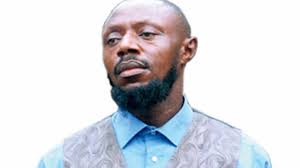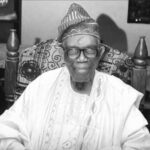“ Religious fundamentalism of the basest type… has never done any society any good. Nigerian society is bogged down with myriad of problems ranging from poverty to corruption both in the economic and spiritual sense, which has engendered many of its vulnerable elements susceptible to the wares of religious highwaymen… who offer them stone when they deserve bread and scorpion when they demanded fish”- Justice Olubunmi Oyewole
Last week, the controversial Lagos cleric, Mr Chukwuemeka Ezeuko, alias Dr Reverend King, was convicted of murder and murder and was subsequently sentenced to death by a Lagos High Court Judge, Justice Olubnumi Oyewole. The case had become a cause célèbre because of the revelations which came out in open court about the sexual exploitation and abuse of members of the church by the self-styled man of God.
The Nigerian society has always been very religious, and it is an acceptable norm of social existence to be seen as very religious or ‘pious’. Religion has been a very strong factor in the construction of the social consciousness of the overwhelming majority of the Nigerian people, and in the past, especially in Northern Nigeria, Islam provided the basis for civilized conduct of social life, for governance and politics, the regulation of economic life and it was the basis of the connection to the best fruits of human civilization up to the colonial conquest, beginning from Illorin and Bida in 1897 to 1904, in the most of the other emirates of Northern Nigeria. Christian missionary activities in several parts of Nigeria also opened up access to Christianity and western education. This became another route to a very strong religious tradition in Nigeria. But there was also a negative aspect to the religious environment, especially subsequently in the inability to develop strong rationalist traditions in thought and practice and the underdevelopment of the scientific method in epistemology, weltanschaaung and in apprehending the effects of modernity in the lived, day-to-day experiences of the people. So in the consciousness of the modern Nigerian there cohabit many layers of influences: traditional, religious and the modern.
But from the mid-1980s, with the gradual withdrawal of the state from the social existence of people through the implementation of economic and social policies sanctioned by foreign governments and institutions, religious, ethnic and other such groups have taken over spaces in social life that the state vacated. So in society, in schools, social organizations have taken over the spaces in peoples’ lives. Today, Churches, Muslim organizations or ethnic associations are booming, with all kinds of evangelical groups, revisionist Islamic groups, even Asian outfits like Hare Krishna now having Nigerian adherents.
There is suffering and an incredible level of alienation in the land, as young people graduate from very low quality institutions and are unable to find jobs: young men and women are finding it increasingly difficult to start families because they do not have the economic power to be in wedlock: modernity confounds people and disorients many. These have proved to be very useful backdrop for the emergence and thriving of all kinds of religious organizations, whose leaders live flamboyant lives, preach prosperity and miraculous healing of people from all kinds of demons and afflictions. The ravages of neo-colonial capitalism, the surrender to neo-liberal capitalism with the natural consequences of producing a few super rich people in a mass of very desperately poor, are presented as the problem of afflictions by witches, demons, and ‘principalities’. The adherents become available and susceptible to all forms of abuse, sexual exploitation, as we saw with Rev. King, Maitatsine, and such groups, can often lead to tragedy.
Our society is in major crisis today, with the proliferation of these types of religious organizations, because they do not enhance the spiritual health of our society; they deepen obscurantism and superstition and do not enhance the capacity of the individuals trapped within the exploitative ambience of these religious bodies are often so divisive in societies such as ours that need a united endeavour for national cohesion in order to conquer underdevelopment.
They often have a self-righteous attitude that sees their own interpretation of the scriptures as the only right way and their doctrines the only infallible route to salvation. All around us, the exploitation of religion is leading to the division of our country while the spiritual lives of the people are not enhanced at all.
The sentencing of Reverend King and the statement from Honorable Justice Olubunmi Oyewole, quoted at the head of this piece, should give us the pause about the exploitative use of religion in contemporary Nigeria. This is because the rise and rise of religious fundamentalism has been directly related to the collapse of the state; the routing of rational education in schools and the takeover of faculties and student bodies by religious groups; the triumph of capitalism without a human face and the effort by people to find a way in life to confront these problems, now refracted in their consciousness as demons, witches, principalities and other such forces that leaders of various religious organizations exploit and manipulate.
We need a more rational, science-based educational system that lays bare mumbo-jumbo and obscurantism; we need a society that is caring and works for the people not a few individuals who exploit their access to power to steal resources that should belong to all. Historically, the platform of religion helped to deepen our spiritual awareness.
Today, religion has become a veritable danger in the hands of unscrupulous individuals, the types described by Justice Olubunmi Oyewole as “ religious highwaymen”. They are robbing the people who fall under their sway in broad daylight, of their humanity, dignity and their spirituality. Unfortunately, most people don’t want to be seen as criticizing religion, ‘religious men’, or practices, and unwittingly, we acquiesce in the rape of society by these unscrupulous individuals. The revelations from Reverend King trial are an example of some of what transpires under the cover of religion all over Nigeria today.


